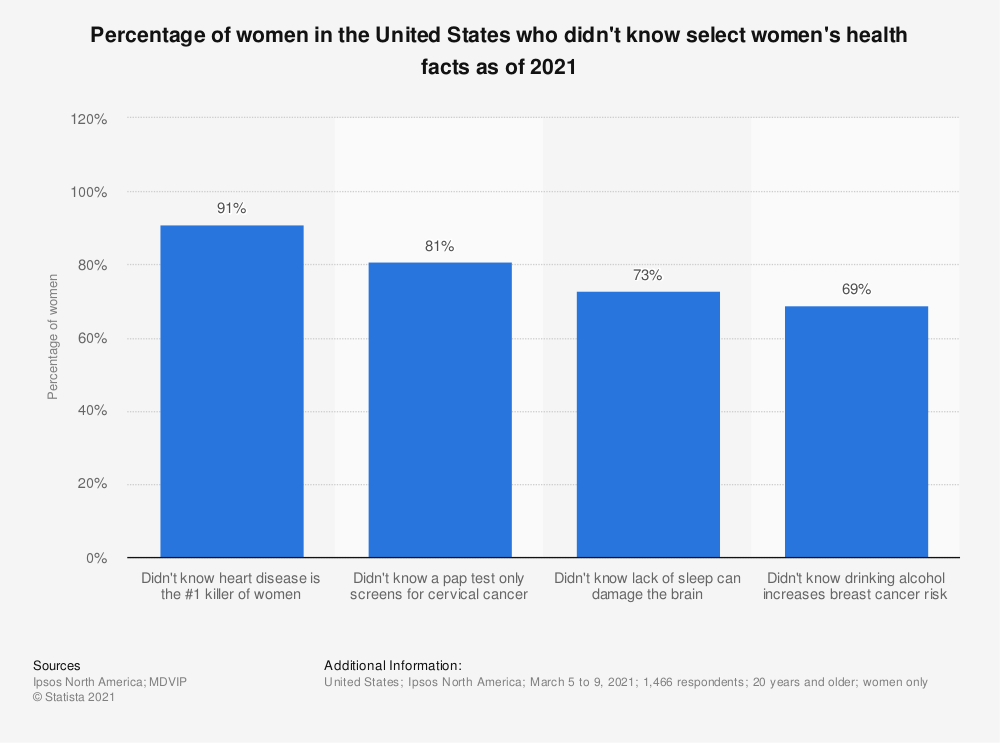
A recent study from Ipsos North American shows that the majority of women lack knowledge surrounding their health. Resources on the BYU campus hope to educate women and create a safe space for them to ask questions and focus on their heath.
The Ipsos North America survey interviewed 1,466 women aged 20 years and older. Approximately 73% of the individuals didn’t know that damage to the brain can be caused by a lack of sleep, a common occurrence for college students.

Mary Claire Riehle is the founder and president of the Women’s Health Association. Riehle created this BYU club to get herself and others involved in women’s health.
“I have actually seen quite a bit at BYU that students feel like their academics are more important than sleep and prioritize it over that,” Riehle said. “They don’t understand the health repercussions.”
Riehle hopes to educate people about health through the Women’s Health Association. She said the club is to be a resource for self-help, to benefit people in their careers and is open to both women and men.
Public health internship coordinator Stephanie Lutz agrees with Riehle that women tend to shy away from asking questions. Lutz and Riehle shared the sentiment that there is a misunderstanding in today’s culture that women cannot take charge of their health.
Lutz said women need to become more in tune with their bodies and the signals they give. She explained listening to one’s body is like being a coach.
“If I’m the coach of my body, I’m making the calls. So if I recognize something’s not right rather than ignore it, seek help,” Lutz said.
There are many resources available to students. For mental and emotional health help, Lutz recommended BYU Counseling and Psychological Services or therapists outside of campus. As for physical health, Lutz said most doctors’ offices have nurses available to talk over the phone and provide medical advice.
Another on-campus resource is Women’s Services and Resources. Director Dixie Sevison said it is a hub of information and a “referral network for students, staff and faculty.”
Sevison said the office extends services to women and men, creates educational programs and puts on events. Some of the events include Sexual Assault Awareness Month, Eating Disorder Awareness Week, the Be You Campaign and Healthy Relationship Workshops, Sevison said.
Individuals that are interested in these campaigns can find them on the Women’s Services and Resources website.
Sevison and Lutz both emphasized the importance of seeking help through professionals. They agreed reaching out to family and friends can be a great first step to receiving validation.
“Friends are great and so is the internet, but they are not a substitution for a professional,” Sevison said.
Sarah Stone, president of the Global Women’s Studies Honor Society, echoed similar thoughts about the internet. Stone sees social media as a “powerful tool” for starting conversations around vulnerable topics. However, she said she has also seen it “fuel the problem.”
In regards to finding resources on campus and in the community, Stone said there are “more resources than people think.”
The Women’s Services and Resources website has a comprehensive map of where all the mother’s rooms and changing stations are around campus. In a survey Stone conducted, she found that about 90% of the people interviewed did not know the map existed.
Stone said she believes there is a lot of power in collaborating with groups that also support women. The Global Women’s Studies Honor Society and the Women’s Health Association have collaborated on past events. They have also collaborated with Women’s Services and Resources as well as other BYU organizations and clubs.
Rachel Cope, BYU professor and an advisor for the Women’s Health Association, said that through her health struggles she has found a desire to be a voice and advocate for others.
“Women need to learn to respect, appreciate, understand and be familiar with their bodies. They need to be educated — well informed and capable of asking probing questions — and courageous. They need to trust themselves,” Cope said.




